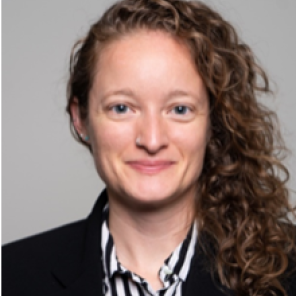
Christina Graves is an Assistant Professor specializing in mucosal neuroimmunology at the UNC Adams School of Dentistry. With a PhD in Biomedical Sciences from the UF Colleges of Medicine and Dentistry, she brings a transdisciplinary perspective to her research program exploring host-environment interactions along the oral-gut axis. Her graduate work led to the development of a novel ex vivo epithelial-cell culture system and described dysfunctional epithelial innate sensing in type-1 diabetes. As a postdoctoral fellow, she described protective roles for gut macrophages during infection and characterized a novel macrophage population in zebrafish. Graves is a strong advocate of team-based science and has enjoyed many productive collaborations with clinicians and basic scientists alike. Her training and research have been supported by the NIH, Helmsley Charitable Trust and NC TraCS. In addition to her research, Graves is a passionate educator, mentor, and strong advocate of undergraduate and first-generation research experiences.
Please briefly describe your background and research interests.
I have a diverse training background spanning evolutionary biology, epithelial biology and mucosal neuroimmunology. Fundamentally, my research interests are rooted in understanding how infectious and non-infectious stressors educate host-environment dialogues along the oral-gut axis throughout development. Currently, I’m using zebrafish as a powerful (and translational!) model system to explore these interactions (P.S. – they also have teeth!).
How did you first learn about the AADOCR Mind the Future Program, and what motivated you to apply?
I first learned about the AADOCR Mind the Future Program while attending a workshop the 2023 AADOCR Conference in Portland, Oregon. I was motivated to apply after learning more about the vision and mission of the Program. I love the ‘pay-it-forward’ structure… In many aspects of life, it really does ‘take a village,’ and I believe meaningful, scalable scientific discoveries are no different.
I know that this program will well-equip me to not only conduct and participate in great science, but also to train the next generation of dental, oral and craniofacial health researchers for many years to come.
What has been the most valuable benefit of AADOCR membership to you?
The most valuable benefit of AADOCR membership to me has been being able to “make new friends” while “keeping the old!” and knowing that I’m participating in an organization whose collective work will have real human health impacts. I love getting to meet long-time colleagues at the annual conferences while also building new scientific and professional bridges.
Are you going to next year’s IADR/AADOCR General Session in New Orleans? If so, which parts are you most looking forward to?
Yes, I will be attending next year’s IADR/AADOCR General Session in New Orleans! The part I’m most looking forward to is getting to meet our Mind the Future Cohort in person.
What is the best way for other members to become more involved in AADOCR and get the most out of the membership?
For me, attending the conference in person this past year was the best way to get more involved in AADOCR. The in-person experience allowed me to connect with existing and new collaborators (everyone is so approachable!) as well as discover scientific, service and leadership opportunities that both my students and I could engage in.




